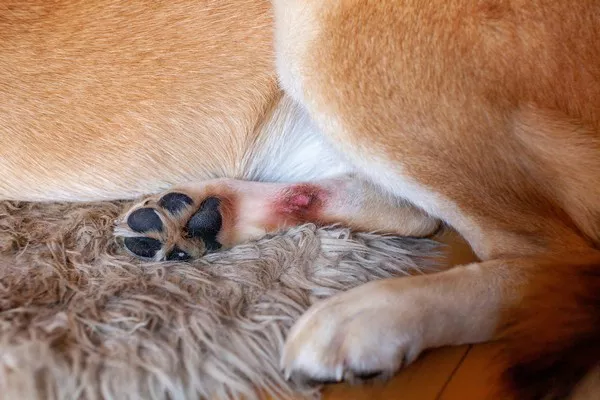A previously unseen instance of sexually transmitted ringworm caused by Trichophyton mentagrophytes type VII has been documented for the first time in the United States, as reported in a study published in JAMA Dermatology on June 5.
Trichophyton mentagrophytes is a common fungus known to cause ringworm in humans and animals such as cats and dogs. However, a specific subtype, genotype VII, has now been identified as capable of transmission through sexual contact, according to the Centers for Disease Control and Prevention (CDC).
Dr. Avrom Caplan, a dermatologist and assistant professor at NYU Grossman School of Medicine, emphasized the significance of this finding: “Healthcare providers should be alert to the emergence of Trichophyton mentagrophytes type VII, which represents a new category of severe skin infections now present in the United States.”
Understanding Trichophyton mentagrophytes Type VII
Trichophyton mentagrophytes typically causes ringworm, athlete’s foot, jock itch, and other fungal infections affecting the skin, hair, and nails. Dr. Bindu Balani, an infectious disease specialist, explained that this fungus is generally treatable with common antifungal medications in the US, despite instances of drug resistance reported elsewhere in the world.
First US Case Detailed
The reported case involves a man in his 30s from New York City who developed a pruritic rash on his genitals, buttocks, and limbs shortly after returning from travels to England, Greece, and California. The individual reported multiple male sexual partners during his travels, none of whom displayed similar symptoms. Two months prior to the onset of symptoms, he had visited a sauna.
Genetic testing confirmed the presence of Trichophyton mentagrophytes genotype VII as the causative agent of his rash. Initially treated unsuccessfully with fluconazole, the patient showed improvement after subsequent therapy with terbinafine and itraconazole.
Expert Insights and Recommendations
Dr. Aniruddha Hazra, an infectious diseases expert not involved in the study, noted that symptoms of this fungal infection may resemble jock itch or eczema, rather than the classic ringworm appearance.
Dr. Balani underscored the importance of seeking medical attention for persistent or treatment-resistant rashes in the groin area, particularly after recent travel or sexual activity. She advised diagnostic testing through fungal sampling and emphasized the potential need for screening for other sexually transmitted infections in affected individuals.
Prevention and Treatment
To prevent fungal infections, Dr. Balani recommended maintaining cleanliness and dryness in affected areas, frequent handwashing, avoiding sharing personal items, and wearing shoes in public places.
Conclusion
While this first documented case of sexually transmitted Trichophyton mentagrophytes type VII in the US raises concerns, current antifungal treatments remain effective against it. Health officials emphasize vigilance among healthcare providers and the public, particularly those with persistent or unusual skin symptoms in potentially affected regions or after high-risk activities.
This case serves as a reminder of the evolving nature of infectious diseases and the importance of timely diagnosis and treatment.
Related Topics:

























